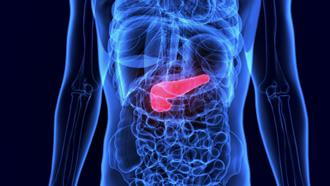
The pancreas is an organ in the digestive system that lies behind the stomach and is responsible for producing insulin, as well as a host of other digestive enzymes and hormones. The pancreas plays a key role in maintaining healthy blood sugar levels and digestion; however, if the pancreas releases these enzymes prematurely, this can irritate and inflame the pancreas, leading to a condition known as pancreatitis.
What are the signs and symptoms of pancreatitis?
Symptoms will vary depending on whether you are dealing with acute or chronic pancreatitis. If you are dealing with acute pancreatitis you are likely to experience,
- Upper abdominal pain that may radiate to the back
- Pain that gets worse after eating (especially when consuming a high-fat diet)
- Tenderness in the abdomen
- Swollen abdomen
- Increased or rapid heart rate
- Nausea and vomiting
- Fever
People who experience several acute episodes of pancreatitis can develop enough damage that it becomes as serious as chronic pancreatitis. Those with chronic pancreatitis will also experience pain in the upper abdomen as well as unexpected weight loss or oily stools.
What causes pancreatitis?
There are many reasons people may develop pancreatitis. Certain risk factors include:
- Gallstones
- Heavy alcohol use
- Abdominal injury
- Exposure to environmental toxins
- Undergoing abdominal surgery
- Family history of pancreatitis
- Smoking
- High cholesterol (particularly high triglycerides)
- High calcium levels (hypercalcemia)
How is pancreatitis treated?
How your gastroenterologist decides to treat your pancreatitis will depend on the severity and type of pancreatitis you are dealing with. Mild or acute forms of pancreatitis may be improved through simple dietary changes (a low-fat diet) or antibiotics and pain medications.
For severe or chronic cases of pancreatitis, patients may need to be hospitalized where they will need to undergo fasting until the inflammation goes away. Sometimes surgery is necessary to remove the gallbladder if gallstones are the cause of your inflammation. Surgery can also remove diseased regions of the pancreas.
If you are dealing with persistent or severe abdominal pain you must seek immediate medical attention even if you’re not sure if you’re dealing with pancreatitis. If you suspect that your symptoms could be due to pancreatitis, a gastroenterologist will be the best specialist to turn to for a diagnose and treatment plan.
